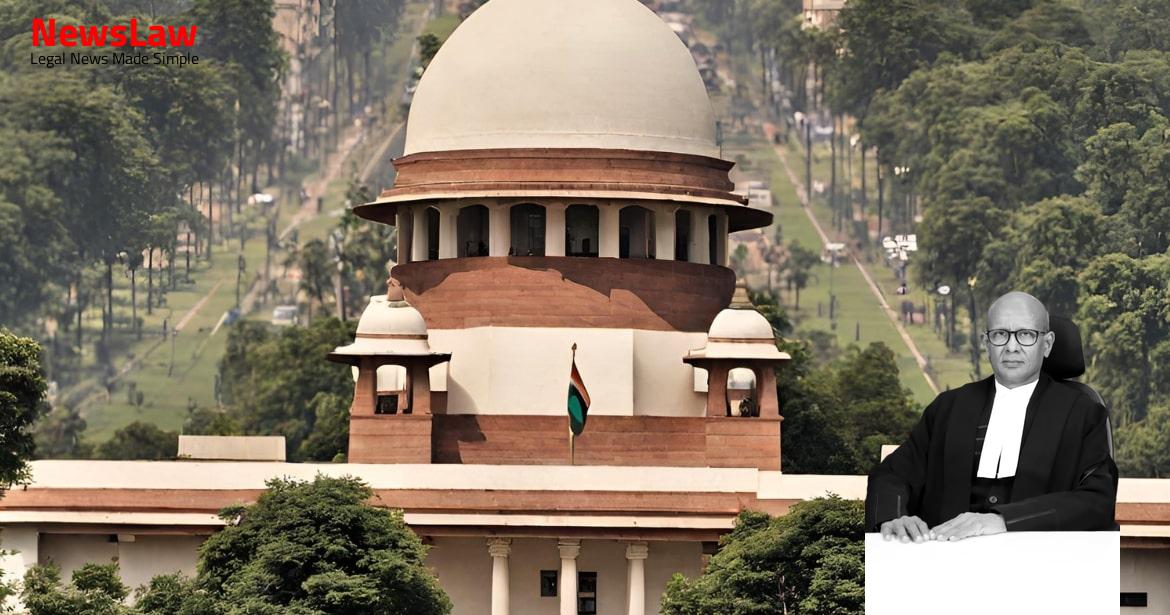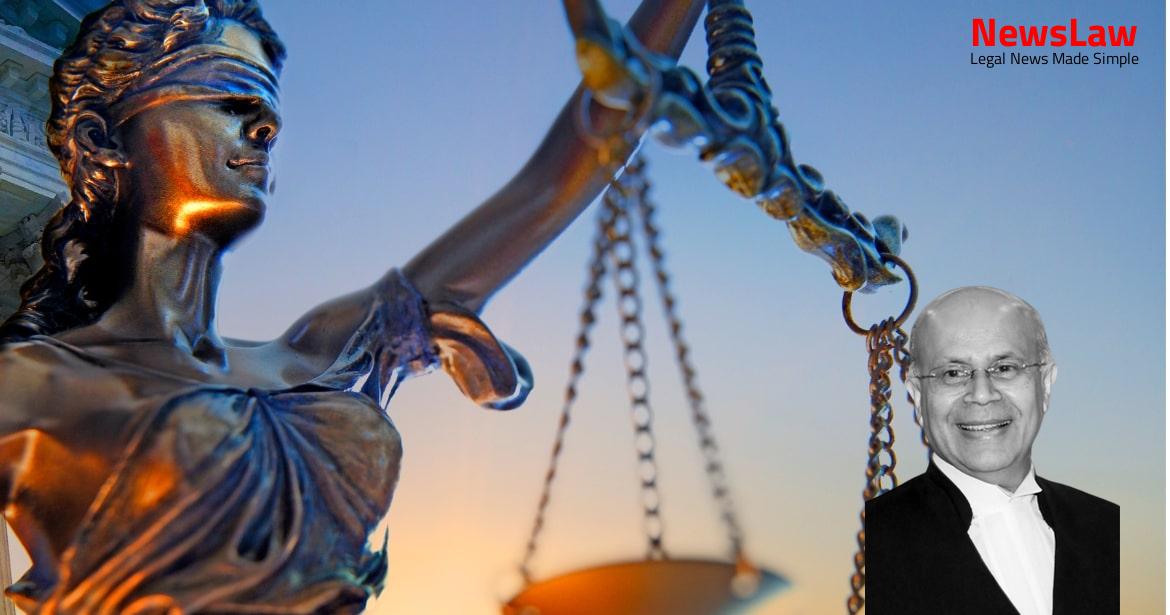In a significant legal case, the Supreme Court of India has delivered a judgement on the divorce petition filed by the Jatinder Kumar Sapra (Appellant) against the Anupama Sapra(Respondent). After a long legal battle, the court has granted the dissolution of their marriage based on irretrievable breakdown. The judgement highlights various factors considered by the court to ensure justice for both parties, including the duration of cohabitation, nature of allegations, and impact of legal proceedings. The Appellant Husband, a former manager in multinational corporations, has been ordered to pay Rs. 50,00,000 as permanent alimony to the Respondent Wife.
Facts
- The parties were insistent on parting ways due to an irretrievable breakdown of their marriage.
- Leave was granted for the dissolution of the marriage as requested.
- The Appellant Husband was alleged to have subjected the Respondent Wife to cruelty and torture.
Also Read: State of Madhya Pradesh v. Land Possessors: Title Dispute Legal Battle
Analysis
- The appellant and the respondent got married in 1991 in Faridabad, Haryana.
- They had two children during their marriage.
- After 14 years of marriage, bitterness entered their relationship.
- The court emphasized that granting a divorce based on irretrievable breakdown of marriage is not an absolute right, but a discretion that must be carefully considered.
- The court stated that various factors must be taken into account to ensure ‘complete justice’ is delivered to both parties.
- Factors considered include the duration of cohabitation after marriage and the last cohabitation date.
- Nature of allegations made by the parties against each other and their families are to be taken into account.
- Impact of legal proceedings and orders passed over time on the personal relationship is crucial.
- Efforts made to settle disputes through court intervention or mediation are significant.
- A separation period exceeding six years is relevant.
- Economic and social status, educational qualifications, and dependent children are key factors.
- Custody and welfare of minor children, fair alimony provision, and economic rights of children are to be addressed.
- The court must be convinced that the marriage is emotionally dead and beyond salvation for dissolution.
- Allegations of ill-treatment by the Appellant and interference by the Respondent’s parents are noted.
- Parties have been separated for 22 years since January 2002.
- The court refrains from expressing any opinion on the merits of the allegations between the parties.
- Decree of divorce is passed based on the irretrievable breakdown of marriage.
- Discretion is exercised under Article 142(1) of the Constitution of India.
- Totality of circumstances leads to the conclusion that the marriage has broken down.
- No possibility of future cohabitation between the parties.
- Formal union between the parties is deemed neither justified nor desirable.
Also Read: State of U.P. v. Shahid Ali: Landmark Judgment on Culpable Homicide
Decision
- The Registry is directed to prepare a decree of divorce.
- The Appellant, who has previously held managerial positions in multinational corporations and currently has a substantial estate, is ordered to pay Rs. 50,00,000 to the Respondent Wife as permanent alimony.
- Gratitude is expressed to Shri P.S. Patwalia, Learned Senior Counsel for his assistance.
- Pending applications are disposed of.
- The decree will be given to the parties only after the full payment of the alimony is made to the Registry.
- The appeal is allowed under the mentioned terms.
- Payment schedule for the alimony: May 15, 2024 – Rs. 10,00,000, June 15, 2024 – Rs. 10,00,000, July 15, 2024 – Rs. 10,00,000, August 15, 2024 – Rs. 10,00,000, September 15, 2024 – Rs. 10,00,000.
Also Read: State of Haryana v. Ashok Khemka: Timelines and Legal Interference
Case Title: JATINDER KUMAR SAPRA Vs. ANUPAMA SAPRA (2024 INSC 382)
Case Number: C.A. No.-006088-006088 – 2024



